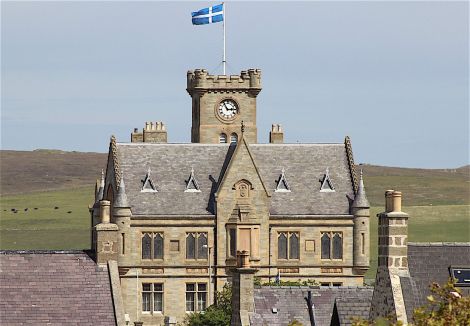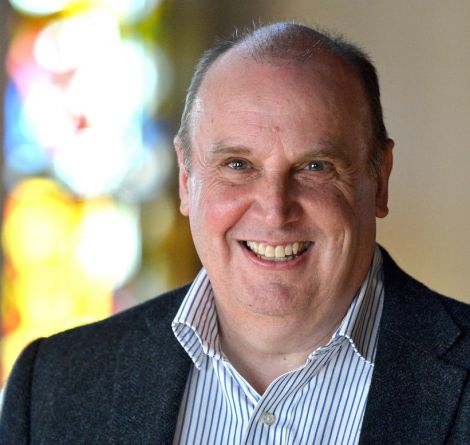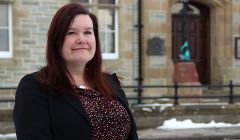Council / Inaugural child poverty report welcomed
SHETLAND’s first report on the work being done to reduce child poverty in the isles has received a warm welcome from councillors.
Shetland Islands Council now has a statutory duty to compile an annual action report as part of the Child Poverty (Scotland) Act 2017.
Shetland’s first action report, covering 1 April 2018 to 31 March 2019, was given approval from the council’s education and families committee at Lerwick Town Hall on Friday morning.
It will go in front of the policy and resources committee next week for formal approval.
The report highlights that Shetland’s child poverty level is relatively low.
Less than six per cent of children in Shetland in 2015 lived in low income families compared to a Scottish average of 16.5 per cent.
“However, this figure has remained fairly static over the past decade while the Scottish average has fallen,” the report warned.
It also noted that Shetland has a relatively high cost of living compared to the rest of the country, meaning that “many more of our children and young people may be in financial hardship than is indicated by the national figures”.
A foreword jointly written by NHS Shetland chairman Gary Robinson and education and families committee chairman George Smith said that “we are not complacent to the challenges that we face”.
They stressed a need to increase awareness across the public, private and third sector of their roles in tackling the “drivers” of child poverty.
There was also a spotlight placed on the need for all families to be able to access the support they need to “maximise their incomes and reduce their household costs, so they have more money available to them”.
“We will also explore the role of employers, employability services, and how we can enable families to readily access leisure and recreation (including volunteering) activities,” they added.
Become a member of Shetland News
The report itself is split into various sections, including reducing the cost of living, building and nurturing relationships and monitoring and evaluation.
It highlights the work done over the last 15 years to get a better grasp of the experiences of people living in poverty in Shetland and the drivers of child poverty.
This has included Shetland Partnership’s establishment of the commission on tackling inequalities in 2015, which formed a wide picture of inequality in the isles.
There is also mention of the council’s commission of a financial health service and energy advice service, which are delivered by the local Citizen’s Advice Bureau.
Actions due planned for 2019/20 include research on the relationship between the higher cost of living and poorer outcomes, and a project to help parents move into employment.
A scheme is also mooted to “eradicate food poverty in Shetland” to reduce demand on the local food bank.
As councillors discussed the paper chairman Smith said he was “absolutely delighted to put my name to the foreword in this report”.
He said it is a fact that there are some children living in poverty in Shetland.
Smith said the report was a “really good focal point” and suggested it was a strong foundation to work from going ahead.
He admitted that some of the actions included were somewhat aspirational – but it is good to have “high aspirations”, the councillor said.
Westside member Catherine Hughson, meanwhile, asked for a clearer definition on a statistic which said that 49 per cent of households in Shetland do not earn enough to “live well”.
Council policy manager Emma Perring said it was linked into the minimum income standard, which is used to identify what different types of households require to attain a socially acceptable living standard.
This varies across the UK, with an emphasis placed in island communities on households having items like freezers or a tumble dryer, Perring said.
Shetland Central member Davie Sandison asked why there was not a clearer mention of childcare in the report, while south mainland’s Robbie McGregor raised the issue of electricity prices and their impact on households.
He said “horrendous” rises in the cost of electricity can have a particularly damaging knock-on effect in somewhere like Shetland because of some houses perhaps not having adequate insulation.
Smith questioned the role of energy regulator Ofgem in energy price rises, suggesting that its arrival onto the scene ultimately gave providers the licence to up prices on dual meter tariffs commonly found in Shetland.
“I think it needs somebody with more clout than me to take it to Ofgem,” he said.
North Isles member Ryan Thomson, meanwhile, said it was “quite staggering” that the report said people living in Unst have a cost of living which is 62 per cent higher than the UK average.
He suggested efforts could be made to do more about making transport in the islands more affordable.
“There is something that the council could do here, and I think it’s it’s something that we need to bump up the order of importance and seek to help those who are quite clearly struggling,” Thomson said.
Westside councillor Theo Smith took the discussion back to energy, suggesting that those in the Highlands and Islands are paying over the odds for electricity compared to other parts of the country.
“I don’t know if Ofgem has any idea what living in rural areas is like,” he added.
The councillor said it was “no wonder people are moving to the centre – no wonder at all”.
Become a member of Shetland News
Shetland News is asking its readers to consider paying for membership to get additional perks:
- Removal of third-party ads;
- Bookmark posts to read later;
- Exclusive curated weekly newsletter;
- Hide membership messages;
- Comments open for discussion.
If you appreciate what we do and feel strongly about impartial local journalism, then please become a member of Shetland News by either making a single payment, or setting up a monthly, quarterly or yearly subscription.











































































